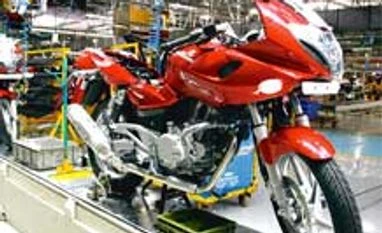Speaking to Business Standard, Mushrif said, “The standoff between the Bajaj Auto management and the trade union continues. The meeting called by the labour commissioner did not arrive at an amicable agreement between the two sides. Therefore, I have decided to meet the sides within a week to find a way out.”
Bajaj Auto’s Chakan plant has been facing a partial strike since June 25, with a section of the workers stopping work, demanding increased wages, reinstatement of sacked workers and equity shares of Bajaj Auto at a discounted rate. Several round of talks have failed break the stalemate.
More From This Section
Vishwa Kalyan Kamgar Sanghatana, a representative body of trade unions, had made a strong case for the reinstatement of 15 workers suspended since last December. However, the management had opposed it, asking the workers to rejoin immediately and step up production at the Chakan facility.
Mahesh Khanapurkar, office bearer of Vishwa Kalyan Kamgar Sanghatana, said the management should revoke the suspension of the 15 workers immediately. “We cannot agree with the management’s proposal to first rejoin work and increase production and after a fortnight, it would decide the fate of the 15 suspended workers.” He added the management had shown willingness to reinstate only two to three suspended workers.
Khanapurkar also said the union maintained its demand for wage revision.
A Bajaj Auto spokesman said, “Today, around 710 workers reported to work; today, we will produce 1,700 vehicles at Chakan and 1,050 Pulsars at Waluj. 91 per cent of our requirement of all brands of the Pulsar, Avenger and KTM is achieved.”
Currently, the company is manufacturing 1,700-1,800 bikes a day at the Chakan plant, against an optimal level of 3,000 units a day. The installed capacity of the plant is about 4,000 bikes a day.
Through the last few days, 660-670 workers have reported to work at the Chakan plant, which has a 1,500-strong staff, including 900 permanent workers.
To avoid clogging supplies to dealers, Bajaj Auto has shifted production of the Pulsar range to its Aurangabad plant, which also manufactures three wheelers and other two wheeler models. Through the last few days, the plant has produced at least 1,000 Pulsar bikes daily.
)